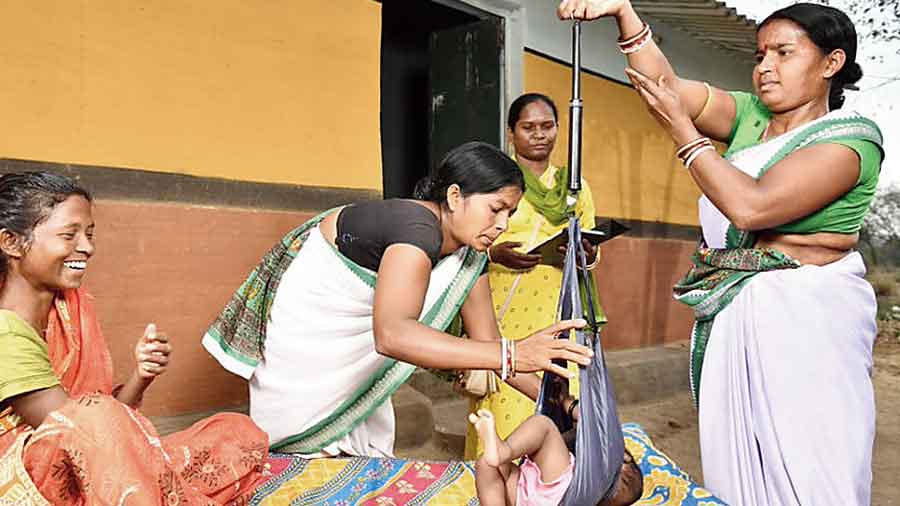The Tata Steel Foundation, a subsidiary of Tata Steel with presence in Jharkhand and Odisha, has bagged the BRICS Solutions for SDGs Awards 2021 for its initiative on maternal and newborn health.
The foundation bagged the award in the SDG-3 (good health and well-being) category for its project called MANSI (Maternal and Newborn Survival Initiative).
The BRICS (stands for Brazil, Russia, India, China and South Africa) Solutions for Sustainable Development Goals Awards, which is organised by the BRICS business council and Ficci, recognises initiatives aimed at achieving SDGs especially through innovative solutions across the BRICS countries. The winners were selected on the basis of evaluation criteria of compliance, efficiency, uniqueness, coverage, replicability and quality of description.
The awards are given in the categories of SDG-2 (zero hunger), SDG-3 (good health and well-being), SDG-4 (quality education), SDG-5 (gender equality), SDG-6 (clean water and sanitation, SDG-7 (affordable and clean energy) and SDG-9 (innovative in industry and infrastructure).
Tata Steel vice-president (corporate services), Chanakya Chaudhary, said: “We are honoured to receive this prestigious award. This award is dedicated to all the sahiyas (rural health workers) who have saved the lives of countless newborns and build a culture where the well-being of women and children is a priority, even during a pandemic. It is also a reaffirmation of the commitment of each member of our team towards better societal outcomes and motivates us to reach out to many more through the Tata Steel Foundation.”
The MANSI initiative engages in enhancing the capacity of the village-based healthcare system (embedded in villages through government health volunteers called accredited social health activists or sahiyas in Jharkhand) by training them on parameters which would address the root causes and underlying reasons for neonatal and infant mortality. The initiative covers around 2.2 lakh households across Seraikela-Kharsawan (eight blocks) and West Singhbhum (two blocks) districts in Jharkhand and Keonjhar (two blocks) district in Odisha.
To reduce the response time to address high-risk cases, MANSI introduced a technical innovation called Operation Sunshine in June 2018. This digital tracking system enables seamless monitoring of high-risk cases of mothers and newborns on a real-time basis.
This digital solution and innovation has facilitated the continuation of sustainable development agenda even in the backdrop of the pandemic.
MANSI is implemented by the foundation in a public-private partnership model with American India Foundation (AIF) and National Health Mission.
The programme is designed to leverage government schemes, building the capacity of existing public health system and strengthening of its processes to enable a sustainable setup.
Further, the continuous support from the programme partners, the gravity of the development challenges being addressed and involvement of the sahiyas have made this programme a successful model capable of being replicated and scaled up.











